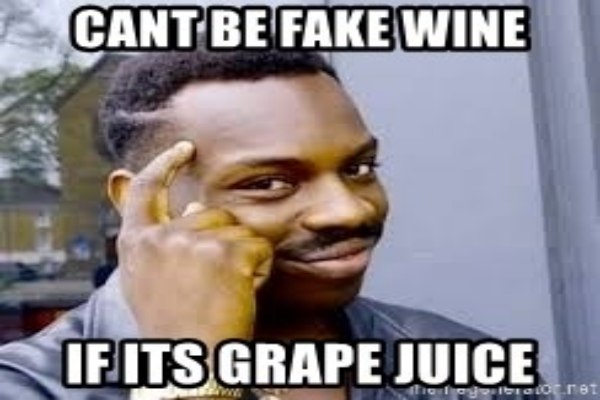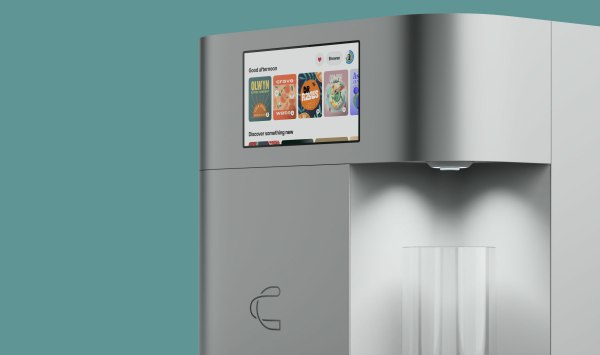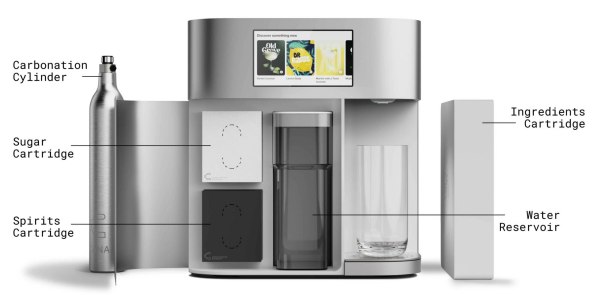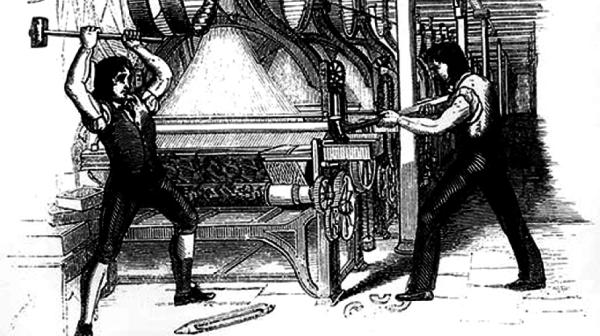Your next wine may be 3D printed
WHO makes it and WHERE, though, is another issue.

Few human communities or endeavours are as inefficient, unnecessarily polluting and intrinsically dumb as the global beverage and bottling industry. Every year, that industry uses huge amounts of land and water to produce half a billion tons of CO2 and over half a trillion single-use plastic, glass, and aluminum beverage containers. To add insult to injury, most of these bottles are filled almost entirely with water, because what actually makes up the odor, color, and flavor of a beverage typically represents just 1% of its total volume.
This absurdity, explained here with many more details, is why the company called Cana was born:
What if, instead, technology made it possible and profitable to recreate wine and nearly any beverage from water and just a few dozen common flavor compounds?
What if everybody could manufacture, just as it’s possible for solid objects with 3D printing, “any drink they want, when they want, right in their own home”?

Quite a grand vision, isn’t it? Then again, why expect anything less, from guys who named themselves after a miracle?
Technically speaking…
Technically speaking, Cana’s vision to “rebuild beverages at the molecular level” is just the already widely researched concept of distributed manufacturing applied to drinking:

Technically speaking, beverage printers could indeed replace the existing supply chains of beverages with ones that would shuffle arond just a tiny fraction of the raw matter used so far, to yeld the same total amount of wines, liquors, fruit juices, carbonated beverages…
Technically speaking, beverage printers could indeed become a successful flagship of distributed manufacturing, if they made all those beverage on the spot, out of local water where consumers are, but with:
- No more crops to irrigate, grow harvest and ship, possibly from faraway countries.
- No more factories to produce single-use cans or bottles, and fill them in advance
- No need to recycle the same containers, and much less waste in general
What could possibly go wrong
The first spanner in the works of beverage printers becoming THE way to make beverages everywhere is the “out of local water” part. Because it crashes head-on with that increasing, but unexplicable propensity (often called “cities”) of humans to live together, in numbers that make local, drinkable tap water already scarce today, when it’s used only to cook, stay clean and… drink tap water.
The second, even bigger part that may, and if we are smart really should crumble in that heaven of environmentally friendly drinking is the “every HOME” part. And it should crumble exactly for the same reasons why molecular beverage production remains a good idea.
Cana says that “having a molecular beverage printer in every home will eliminate the need for mundane errands to pick up and transport beverages, free up space in refrigerators and cupboards, and save money."
Me, I say that having a molecular beverage printer in every neighborhood supermaket will accomplish almost as many real benefits in a much smarter way, by:
- wasting much less materials
- giving much higher quality guarantees
- avoiding certain opportunities
The untold home opportunities of molecular beverage printers
A beverage factory in every home is an open door to:
Binge or excessive drinking: can it become any easier to do, or any harder to spot, than when all you need to sneak a couple gallons of booze past your family is a sachet that would fit in any pocket?
Getting high: targeting beverage printers to homes is an almost explicit invitation to make and consume Cana-compatible versions of every synthetic or organic drug existing today, and then some.
Forget technology, what about “culture”?
Here is one thing I am really curious about: would “printed” liquors be acceptable in Islam? If so, I wouldn’t mind some of their stocks, Cana may have a really huge market ahead itself.
In any case, Cana’s business plan is “is not about mimicking existing beverages, but rewriting and inventing entirely new beverage categories, delivering radically different brands, and enabling creators to develop their own beverage brands digitally."
Hmm… Excluding plain water, most humans could not physically bear drinking twice the other beverages they already drink.
That, plus the fact that local tap water is limited to begin with, means that on the whole Cana printers could replace the beverages we drink today with new ones, or replace the producers of those same beverages. Not both.
In both cases, since many beverages aren’t exactly as soul-less as screwdrivers, Cana’s printers would destroy, together with many jobs, also important parts of the identity of many communities. I have no idea about who would lose in the end, but I do see an awfully big lot of people, both producers and their customers, going full Luddite on Cana:

<u><em><strong>CAPTION:</strong>
<a href="https://commons.wikimedia.org/wiki/File:FrameBreaking-1812.jpg" target="_blank">English pub PATRONS, greeting a Cana beer printer</a>
</em></u>
What could possibly go right
Cana’s idea may be the next Juicero. But it may also be, as long as it stays out of homes and focuses on retail, something great and needed.
Yes, it will destroy a huge number of jobs, and some culture too.
But the “neighborhood supermaket” version would be worth those costs, if it really slashed the hugely embarrassing waste that the industry is today. Besides, at least in some cases, there would be no heritage lost. The uber-rich will be uber-happy to pay stuff like Brunello di Montalcino ten times what they pay today, just because it makes them the only people on Earth who still drink “real” fine wines, from real fine grapes.
So, I’m really curious to see how it ends up. Cana, what do you say?
Who writes this, why, and how to help
I am Marco Fioretti, tech writer and aspiring polymath doing human-digital research and popularization.
I do it because YOUR civil rights and the quality of YOUR life depend every year more on how software is used AROUND you.
To this end, I have already shared more than a million words on this blog, without any paywall or user tracking, and am sharing the next million through a newsletter, also without any paywall.
The more direct support I get, the more I can continue to inform for free parents, teachers, decision makers, and everybody else who should know more stuff like this. You can support me with paid subscriptions to my newsletter, donations via PayPal (mfioretti@nexaima.net) or LiberaPay, or in any of the other ways listed here.THANKS for your support!